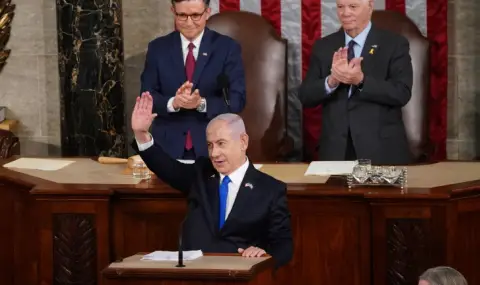Israeli strikes against Iran pose to Putin's regime the question of the limits of the assistance it can provide to Tehran, writes Konstantin Eggert.
Oil prices have gone up, which means that Russia's revenues will also grow. This is just one of the consequences of Israel's strikes against Iran. Another consequence will be the inevitable diversion of world attention from Russian aggression against Ukraine. Both are good news for Putin's regime.
Does Putin have enough missiles to help Iran?
Fully expectedly, Moscow condemned the Israeli attack. But even if the Russian ambassador were summoned to the Israeli Foreign Ministry to be handed a note of protest, this would not seriously affect the Russian regime's relations with the government of Benjamin Netanyahu. The Israeli prime minister is interested, for example, in preserving Russian military bases in Syria because he believes that this will limit the influence of Turkey, which is waging a kind of cold regional war against Israel.
For their part, the Iranians are aware that, despite all the assurances of friendship and alliance from Russian leaders, they cannot do much to help the Iranian regime. If the regime in Tehran needs it, Putin will agree to host leading Iranian scientists on Russian territory and perhaps hide some particularly valuable materials and equipment there. Of course, Moscow will support any resolution condemning Israel at the UN.
It is also possible that the Kremlin will order Russian manufacturers of combat drones to help their Iranian "colleagues" in restoring production - but not for free. Over the decades that the Iranians developed their nuclear program and modernized their army and Revolutionary Guard, they have accumulated great engineering and technical experience. Gone are the days when representatives of the Russian military-industrial complex looked down on the Iranians. Let us recall that it was Russia that bought the license to produce the "Shahed" drones from Iran, and not the other way around.
Of course, Tehran may want to buy missile systems from Russia - both for air defense and "surface-to-surface" missiles. And if there are hardly any problems with the former (as long as there are enough of them for the Russian army), then with regard to the missiles with which Iran could hit targets in Israel, the situation is quite different. It is one thing to help improve the defense of an ally, but quite another to contribute to the revenge promised by Ayatollah Ali Khamenei for the Israeli strikes. If Tehran is provided with such assistance, it will provoke the anger not only of Israel, but also of the United States. I believe that if such a request is made, Putin will have to seriously think about whether to fulfill it. He may not even think about it, but simply answer that he would like to, but there is no way, since Russia itself needs these missiles for the war against Ukraine.
The Kremlin is losing influence
The fall of the Assad regime in Syria last year seriously affected the interests of Tehran and Moscow. The de facto expulsion from Syria of Iran's most important client - the Lebanese Shiite movement Hezbollah, plus massive Israeli strikes against Hezbollah positions in Lebanon itself, have greatly weakened Iran's influence in the Middle East. The changes in Syria have deprived Russia and Iran of their most important common interest and basis for cooperation.
At first glance, the regimes in Moscow and Tehran have much in common - they hate the West, especially the United States, think primarily about how to survive, and given the advanced age of their leaders - about how to reproduce themselves. Both regimes rely on an external enemy with which to justify repression, to which they add mobilization along patriotic lines. But these are typical features.
More important are the differences. For the Russian dictatorship, the main goal is to defeat Ukraine, establish an obedient regime in Kiev, and destroy NATO by undermining the organization from within. Especially now, when the Trump administration gives so many reasons to question the US commitment to transatlantic partnership and solidarity. Russia's unreserved support for Iran could harm this game, led by the Kremlin. Furthermore, the Russians may simply not have the resources to continue their war while helping the Iranians fight theirs. Add to that the massive damage done to Iran’s military, energy, and transportation infrastructure by the Israeli strikes, and Iran looks pretty weak today, and the amount of help it needs is downright shocking. So I think Tehran is unlikely to expect this from Russia.
Despite everything, the Iranians' attitude towards Russia has been and remains cautious. Unpleasant historical memories - both of imperial Russia's active intervention in Iranian affairs and of the joint Soviet-British occupation of the country during World War II - are a factor that we cannot ignore. Of course, this is not the main thing in real politics, but Iranian society has a long memory.
After its (almost) complete defeat in Syria, Russia returned to what it was before its intervention in that country in 2015 - a secondary state in terms of its influence in the Middle East. After the Israeli bombings, Putin's Iranian allies may soon find themselves in the same position.
This comment expresses the personal opinion of the author and may not coincide with the positions of the Bulgarian editorial office and DW as a whole.
